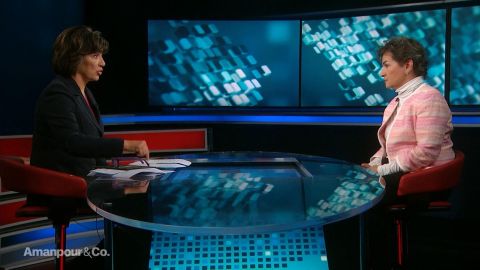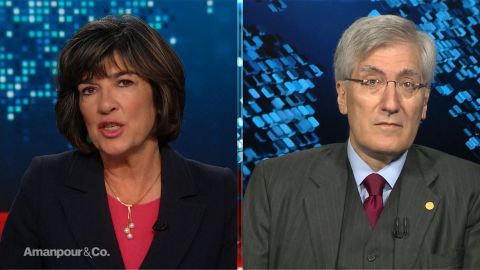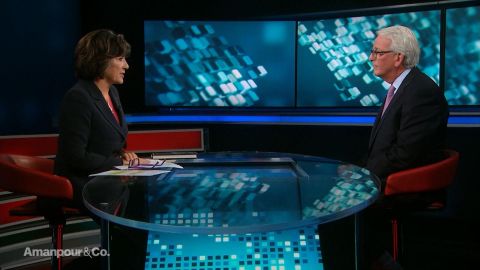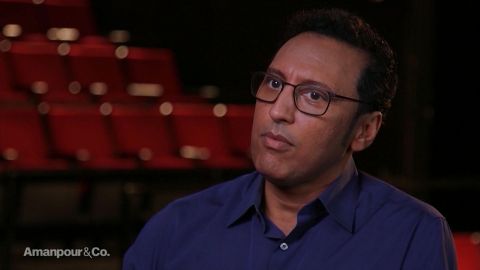Read Transcript EXPAND
IVO DAALDER: Well, clearly getting on the phone and having quiet conversations in order to see whether you can get an answer is one way to get it, but we’re not getting any answers. And so, having a more public face, making sure that people understand that this is very, very serious. The British government has made statements, the French government has made statements, and why not the United States? Why aren’t we out there and saying, “We need answers to the very real questions.” What happened to a man who walked into a consulate and was never seen again? This is the kind of thing that you would hope the United States would take a leadership role on.
CHRISTIANE AMANPOUR: And again, the Saudi government, Saudi official has said, “We are very concerned. We have no knowledge and we’re also are trying to help.” But there’s a huge amount of suspicion because we’re told that plane loads of Saudis including diplomats arrived in Istanbul at the same time that Jamal Khashoggi was in the consulate. They went into the consulate. He allegedly, according to their surveillance footage, did not come out. From what you know about having been a NATO ambassador, and Turkey obviously is a member of NATO, what is the geopolitical fallout if the worst has happened, if he has been killed, if the worst — what the Turkish government officers are briefing on background turns out to be true?
DAALDER: Well, one is, of course, the relationship between Turkey and Saudi Arabia, already tense in many ways in part because Turkey is much more closely aligned with Qatar and there is a major difference between the Saudis and UAE on the one hand and Qatar on the other hand. And if the Turks now start to take this incident as yet another reason to oppose the Saudis, that will be a problem. But it’s also a problem for us. We can’t live in a world, frankly, and accept that major partners of ours are going to go around and arrest and then execute without trial or anything else dissidents who they don’t like, and this is what the Saudis are now accused of doing. We can’t go back to having a normal kind of relationship with a country like Saudi Arabia. And by the way, this isn’t the first time, of course, that the Saudis are saying things and doing things that the United States is reacting to. Remember, just a few months ago, a major reaction from Saudis in response to some criticism from Canada about the human rights record in Saudi Arabia that led to the recalling of the ambassador, that led to the recalling of students, the end of trading relationships. And the only thing the U.S., remember, the leader of the free world, could say about its northern neighbor in major conflict with Saudi Arabia was this is a diplomatic issue that the two countries need to resolve themselves. We need the United States and we’ve had a United States for a very long time that tries to set an example about how one behaves in the world. And that United States, unfortunately, is missing.
About This Episode EXPAND
Christiane Amanpour interviews former U.N. Climate Chief Christiana Figueres; former U.N. Ambassador to NATO Ivo Daalder; and Professor of Jurisprudence Robert George. Alicia Menendes interviews actor and writer Aasif Mandvi.
LEARN MORE



